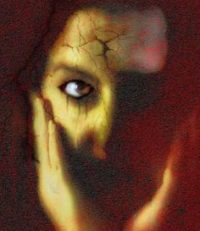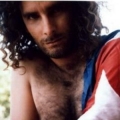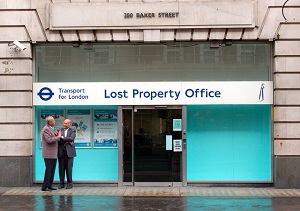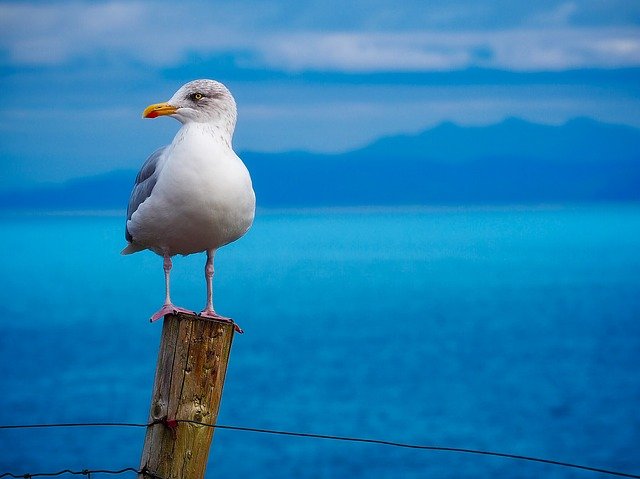You have no items in your cart. Want to get some nice things?
Go shopping
Translated from the Spanish by Lawrence Schimel
The light was killing me. The light and a dream that was the same dream every night. A sort of labyrinth, where we ran like mad through the streets of the neighborhood, blind beneath a murderous sun, shouting pinga and cojones, shouting libertad, shouting viva and Down with the Cuban Revolution! while police bullets shattered the skulls of my friends and girlfriends. Reality cutting to the bone.
But I always saved myself. And it is so terrible to remain alive all alone. Outliving is outdying.
I woke full of sadness. With tears, without breath. Unable to even swallow. With a heavy weight breaking my ribs on the side where the heart lies.
That’s all that I have left now of Havana. Light that kills, blindingly. Light and a meaningless dream. Light and lousy words, shitty words. Evil deaths, passed through the dreamlike blender of savagery. Intermittent shouting, neighborhood vulgarity. And a Cuban rage that (one can’t be certain) is either a consequence or a cause of the Revolution.
In any event, a residual rage. Like the echo of a big-bang which now no longer scandalizes anyone.
I woke with my head wanting to crack from the pain, to split in two from the pain. My brains sliding out of my ears on their own. Through osmosis or gravity, or through some quantum effect of the proletariat.
And I leapt from my bed to open the nineteenth-century windows of my apartment. To open a breach. And then the oppression became sea, became clouds, became parades of planes. I saw the smoke from the chimneys, and I saw another year acting brutally toward Cuba. Two thousand something, two thousand nothing. Counting the minutes, can’t-ing the minutes. The silence of suicides. Hemicrania, a migraine of half the skull. Desperation.
Only later, after a while, did peace return at last. A damned exile at home once again. Wearing my own pajamas against social despotism. A floozy who doesn’t belong to anyone or any place, but who can’t ever manage to get far from home. Oh, Havana. My Hava-not…
The breeze from the Malecón is a relief against my thoughts and the plague. There down below it must already be ten something in the morning. From up here the fatherland suddenly looks like a parking lot. One without parking meters, of course, or civilians. In Socialism we are all sovereignly soldiers. Military Paraparadise.
To wake with a jerk of one’s head, headless. Demented, decrepit, delirious. Slam shut the shutters. No more sea, no more clouds, no more parade of planes. No more smoke from the chimneys, no more two thousand something or zero years. No more minutes. Only the migraine is criteria of truth. Only the silence of suicides remains half-inalterable, half past insistence. Eloquent, deafening, until the tam-tam of the totalitarian tribe out there starts to sound again, as the Cuban midday begins to gather up the shadows beneath our feet.
A country without shadows is so loathsome that.
The light in Cuba is so humiliating that.
It slithers in between the window blinds and beneath the doors. It invades the remains of your privacy. It deprives you of any inner space. Dirty light, exposing, vigilant, photons that are accomplices of State Security. That’s why it’s necessary to set out rags, traps. To halt it. The light in Cuba is like the Revolution: immanent, unnecessary. It must be walled in.
At noon on the dot the funereal party of living in a building with a thousand or fifteen hundred neighbors in the Center of Havana began.
“I’ll kill you, marícón,” a woman’s shout.
Running feet, broken glass, children yelling. People fainting, having heart attacks. Loquacious local hysteria.
“I’ll kill you and I won’t pay you: I’m no cuckold of anyone.”
They were the upstairs neighbors. Or the downstairs ones. Or both. Marriages that held together fairly well, but could no longer hold up under the heat of midday. Then they fell to slaps and curses, only rarely a blow with a machete or something more serious. Almost never was anyone wounded. And even less did anyone think to call the police. That, in this neighborhood, would be considered the highest treason. And although they’d never read José Martí, the neighborhood’s cliques, clans, and cabals certainly knew “the ancient penalty for apostasy” was execution.
And sure enough, some five or six minutes later, everything calmed down. Pax cubensis.
“Te quiero, Papi,” I heard the woman’s voice again. “I loviu with all my heart.”
Applause, laughter, reggaeton and ballads at full volume. Bottles uncorked. And that squealing of children that in Cuba is a universal constant. Everyone gets pregnant and gives birth so early here. We’re starving, but screwing and screwing until the island sinks under our collective weight or Fidel’s posthumous fetus dies on us.
Once the matinee is finished, the curtain slowly comes down.
“Te amo, Papi, I want to make you feel so good and for you to squirt that warm milk of yours on my face,” after the show, porno in the dressing rooms. “And as for that girl, well, it would be better if she went back to her motherfuckin’ mama’s house and never showed her face around here again.”
The phone rang. It was you. You and your voice, like liquid, like stainless steel. Like seventeen-year old lichen. You asked if I was awake. You asked if you could stop by. You always asked. Your curiosity was the sole stimulant in the whole length and breadth of the country.
“Please do,” I told you. “I had a bad night yesterday. I dreamed you had been killed. I saw you dead, bleeding to death. I saw you as a hero in the middle of the horror. I think I’m going crazy. I think I need to go to a good hospital.”
There was a knock at the door. I went to open it. It was you. You and your hair like black rain, like asphalt. Like jet-black shampoo. You were so sweaty. There was an unbearable lethargy hanging over everything. You asked if I felt a bit better. You asked if you could come in. You asked if I wondered why you always asked about everything.
“Please do,” I told you. “I had a bad night yesterday. I dreamed that you had been killed. I saw you bleeding to death, dead. I saw you horrified in the middle of the heroes. I need to go to a good hospital, I think. I think I’m going very crazy.”
But, of course, we didn’t go anywhere. There are no real hospitals in Cuba, neither good ones nor bad. Leaving my apartment was beyond my strength. And with you there, it was impossible.
You were lovely. You went to the kitchen and prepared for me one of those herbal infusions you always bring me. This was a red tea, imported from China you assured me. Your silhouette outlined against the rising steam was magnificent. You seemed ethereal yourself. You, your tea. I told you so. You didn’t pay me any attention.
The whole house smelled of gas, because the stove leaked. That propane gas was the smell of my childhood. Of the childhood of all Cubans. We miss that smell of gas, wherever in the world we go to never again return. That propane lost in Havana is the Paradise we’ve lost across the planet.
You started to cough. I realized that you coughed as if you were only seventeen years old. I had never before been aware of your age. You were a child, incredible. But even more incredible was that, being a child, you might love me. I saw you as such a woman. So free. So returning after everything. Suffering so from our inhospitable Havana. So determined to escape from Cuba with me at the first chance. So yourself. So tea.
You straddled me. I groped you. You arched. You said ay, very softly. Like how little girls complain, politely. Demurely. Unsurely.
I had to read your lips to understand your cry. It was an ay without question. A friendly ay, relaxed. An interjection, intimate rather than intense. An ay of feeling at home. Of not wanting to leave without me. Of leaving together and coming and leaving again.
Seated upon my flagpole. What a horrible word. Instead of saying like my neighbors do: seated on my cock and that’s that. Arching back, luminous. Your eyes rolled back until only the whites showed. Your gaze gone, so deep within my eyes. And I feeling stupidly happy that you were you.
I loved the disaster of my inherited apartment, with its scent of childhood gases. Hellflower. Molds from the damp. With the racket of the neighbors, their fights and cheap reconciliations. Cuba still with Castro, or with the walking cadaver of a Castro still with Cuba out there. With the Havana from which we also fled on the other side of the wall, a city blinded like the humiliating light that forced its way around the blinds and the doors, spying on the remains of our pleasure.
I loved that we were now and here, both of us ageless. You, my only woman, after a life with wholesale simulacra of women. I, your first man, before a lifeful of men. We, inhabitants of the future. Memoryless. Disinhabitants of a Havana now without any traces of migraine. Gracias, mi amor. You cured me. Even pain was diluted in the delight of my deliriums thanks to you.
You didn’t cover yourself after you came, like on other times. You stretched against me, as you’d never done. You told me, “Orlando Luis, I’m leaving.”
I understood. You understood that I understood. We understood.
“Orlando Luis, I’m leaving” meant in Cuban “Orlando Luis, I’m leaving the country.” It meant that you didn’t have the luxury of waiting for me and my eternal indecisions. It meant that a chance had fallen before you that you couldn’t share nor waste. And especially not with me.
Even clearer than water: “Orlando Luis, I’m leaving the country” meant in Cuban: “Orlando Luis, I won’t see you again.” But “Orlando Luis, I won’t see you again” has no intelligible translation in Cuban, so the sentence we utter in Cuba is the one you had chosen: “Orlando Luis, I’m leaving.”
And thus everyone understands perfectly what is meant without needing to say it aloud. You, I, us. Speaking it is worse.
I liked to undress myself at night in the city.
I went out to Morro Castle, to the edge of the pits where the firing squads shoot so many. I went to the Alamar’s decrepit buildings, beneath the flame trees and the electric blackout. I went to the statue of a tired Lennon in a little park of El Vedado. I went out to the mouth of the Almendares River. And then to the bridge over the Almendares River, where 23rd street became 41st street without realizing it.
I went every night to a corner of Havana that was more or less public or hidden. I waited for a moment that was a little more desolate in the middle of the general desolation. And then I took off all my clothes. Without thinking twice about it. That wasn’t necessary. I had already thought about it before, perhaps too much.
I breathed. My eyes wild. Buck naked. My skin goosepimpled with excitement, fear, or that Nordic cold that, when you’re alive, pierces you to the bone in the late hours of the night in Havana. And I was suddenly very alive. Very, perhaps too much.
And then I started to shout like a madman. Something that wasn’t human. Nor animal. It had no vowels. A sort of qwndtpfgwbklljchhh.
Only afterwards, peace. Getting dressed again, like a whore hurrying home. Penéloca, crazy cock Penelope of the barbarism belonging to no one and no place, but who can’t manage to get far from their hemicranial, hemicardiac, hemiHavana home.
The time the police stopped me I almost got shot with real bullets, made not from dreams but from a leaden nightmare. They pressed three pistols against my head at the same time. They cocked them some thirty times. I don’t know why they wanted to spill my brains, to shatter the very last bone in my skull, leave me bleeding dry in the middle of the street without even letting me cover myself.
They dragged me to an electricity pole. Still naked. They wanted to see properly who I was. They couldn’t ever verify anything. It was too obvious that I was Orlando Luis.
They spun me around. The lightpost struck my face with fury. As did fists, curses, spittle. The Cuban light and the Cuban police were killing me, but the most agonizing thing was that they never finished killing me. Where to stop? Where to place a period and start a new paragraph?
To forget is a strictly political question.
Whoever had a childhood will always be a child.
Castroism in Cuba is before and after the parenthesis of the Castros.
Light causes cancer.
Thirst is the essence of socialism.
Being Cuban means having no contemporaries.
True Life is not elsewhere either.
I miss you.
I sold the apartment. Clandestinely, I bought a raft. I wanted to leave Cuba, Orlando Luis. But I had no one in Cuba who I could say it to. Hence this dialogue among the deaf held in kicks more than words.
I wanted to stop anyone in the street in order to tell them. I’m leaving, I’m leaving, I’m leaving. It was a vile winter, in the thirties Celsius each afternoon. I was in the area around the Yara Cinema. And not even the breeze from La Rampa, nor the halo of air conditioning from the Habana Libre hotel could alleviate the thermal sensation of oppression.
That’s what totalitarianism is: a consummate conspiracy where even the climate is captive.
I saw her. I threw myself at her, almost without realizing. It seemed she was a university student. She was coming down the hill of L street and I told her by chance, perhaps to avoid her. I told her that I was leaving, that I was leaving, that I was leaving, and that I had no one in Cuba who I could say it to, as we crossed beneath the busiest stoplight of Havana and the Americas.
She had black hair, like asphalt. Jet-black shampoo, sweaty. She coughed, and I realized she coughed like a little girl. Incredible. But more incredible was that being a little girl she was also a university student.
She answered me, right before dissolving into the human herd that disembarked onto the sidewalk in front of the Coppelia ice cream shop. Her voice sounded liquid, like stainless steel. Like lichen forever virgin at her seventeen or who knew how few years. All symmetry is a symptom without sickness.
“The street is truly filled with a bunch of madmen,” she told me, with that instantaneous wisdom of when the Cuban people were the Cuban people, and not an amorphous mass stewed by a greater sustained sun.
It is not a matter of waking up with your head wanting to crack from the pain, to split in two from the pain. Your brains oozing out your ears on their own. From amnesia or capillarity or some optical defect of Paradises lost and found. Instead it’s that the most agonizing is not having even a half-silence in which to finish up waking up completely.
I woke up more or less happy. With luminous tears, my eyeballs popeyed. With too much air, hyperventillation. Burping up foam. And with a liberating weightlessness likewise pushing apart my ribs on the side where my heart lay. But I didn’t leap up from my bed to the nineteenth century shutters of my apartment. It wasn’t necessary. The bed is a breach and it is more than raft enough.
Politics is a question of selective forgetting.
Only he who is born an orphan is an adult.
Cuba is a parenthesis of the Cubans.
All metastasis is illumination.
The essence of socialism is to be insatiable.
Castroism is an exquisite state of timelessness.
True life was everywhere too.
I miss you.

About Orlando Pardo
Orlando Luis Pardo Lazo is a writer and photographer from Havana. He lives in Reykjavik. He blogs at Lunes de Post-Revolución and edits the Revolution Evening Post. He is editor of the Cuban narrative anthology Cuba in Splinters and author of the digital photobook Abandoned Havana.



